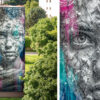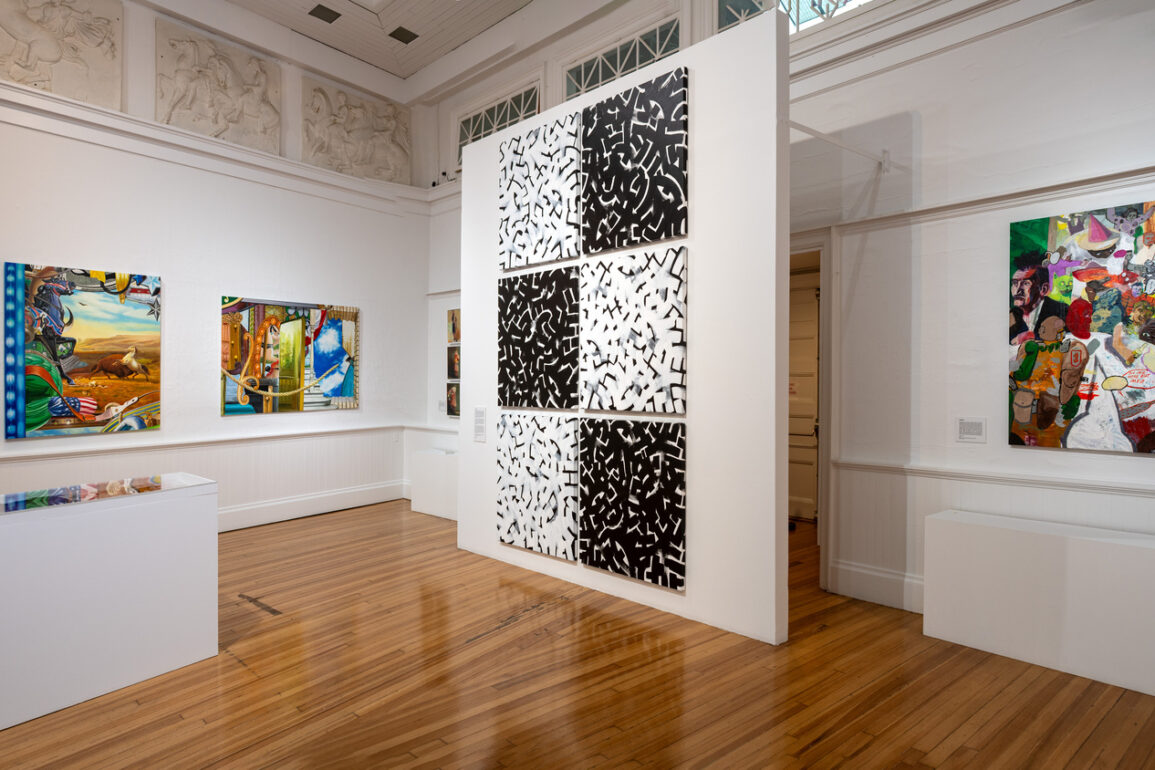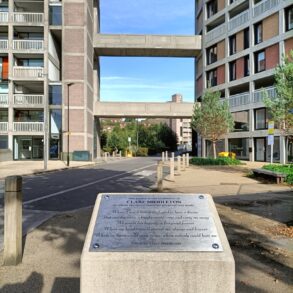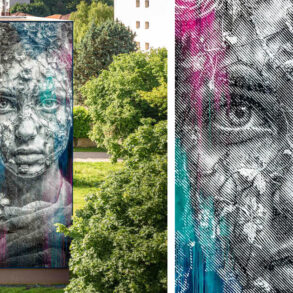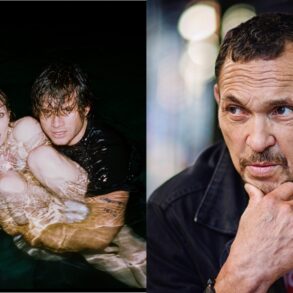
Beginning in the 1960s, the youth of America — particularly kids living in urban jungles like New York and Philadelphia — started expressing their frustrations with society by sharing their thoughts publicly on city buildings, walls, subway cars — anyplace they could reach with their fertile imagination and a can or two of spray paint.
Of course, we know this as graffiti or tagging, an activity considered a scourge by those in charge. In the decades that followed, municipalities spent a good amount of time and money in their attempts to eradicate all that paint from public spaces, even as more appeared seemingly overnight.
But then, something unexpected happened. Those graffiti artists of the 1960s, 1970s,1980s and beyond grew up. Many of them became respectable — even famous — accepted as part of the legitimate art world.
Nobody understands that meteoric rise or change in attitudes toward street artists quite like Roger Gastman. He’s been a champion of the graffiti art movement for years and is closely tied to many of its creators. His own entry into the world of graffiti art began, as it does for most aficionados of the genre, in his youth.
“I grew up outside D.C. in Bethesda, Maryland, and going to D.C. was our spot,” Gastman explained in a recent phone interview. “I had a lot of friends involved in graffiti and a lot of friends involved in the arts. It just happened and was something we did. By the early ’90s, I was completely entrenched.”
Like many sub-cultural genres, the earliest examples of graffiti as a form of expression were often regional in their style and substance.
“Things were more defined by the city in terms of style, aesthetic and color schemes,” he explained. “Then, in the mid-2000s, everything starts to blend because of the internet, Twitter and social media. Somebody paints something in L.A. and three seconds later, it’s global.
“In the beginning, people weren’t traveling as much and art hadn’t blown out as much. In the culture, it was still relatively new and fresh,” he said. “As the years have gone on, this culture is more than global in a sense. It has infiltrated and become part of fashion, music, culture, politics — and there’s an easy reason for so much of that — we’ve all come of age now.
“When you were in a freight train yard in the early ’90s, workers in their 40s, 50s or 60s who were retiring didn’t want to see kids with tattoos listening to punk,” he added. “We’re our peers now, so many of us are in positions of power and it’s not a big deal to be in a meeting with someone who has a sleeve tattoo.”
Over the years, Gastman has managed to turn his love of street art into a profession. He was a consulting producer on the 2010 Oscar-nominated documentary “Exit Through the Gift Shop,” which was directed by the world’s most famous anonymous street artist, Banksy, who figures prominently in the film. Gastman also directed the 2021 Showtime documentary “Rolling Like Thunder,” which delved into the underground realm of freight train graffiti culture. In addition, from 2004 to 2008, Gastman served as editor-in-chief of Swindle magazine, an edgy, lifestyle publication. Produced with Shepard Fairey, the street artist best known for creating Barack Obama’s “Hope” poster for the 2008 presidential election, the magazine was notable for its embrace of street culture as it focused on art, design and fashion, along with socially conscious news stories.
Gastman, who is based on the West Coast these days, is also the founder of Beyond The Streets, an organization that showcases the work of contemporary and emerging artists, with a particular focus on graffiti and street artists. The very first Beyond The Streets exhibition took place in Los Angeles in 2018, and since then, Gastman has published books and collaborated with hundreds of artists as he has taken the concept on the road, presenting exhibitions in London, Shanghai and even right here on the East End where, in 2021, he curated “Beyond The Streets on Paper” at Southampton Arts Center (SAC).
Now, three years later, Gastman is back in Southampton with “Beyond The Streets: Post Graffiti,” an exhibition which opened last weekend at SAC and will remain on view through July 20. When asked how he discovered SAC, Gastman explained that he first learned about the space when its then-director, Tom Dunn, reached out to him about presenting a show there.
“We got in touch with each other and had some really good conversations. Tom wanted to mix it up a bit and wanted to make some noise,” Gastman recalled. “The community was getting younger and he asked about these kinds of artists. He asked what a good entry point would be to a younger population, so we did the works on paper show.
“Coming out of COVID a lot of artists were not in their studios, but they were doing works on paper,” he explained. “It was a great entry point — the work was priced from a few hundred dollars to a lot more. We enjoyed the space, the Hamptons and the audience. From the people who live there and those who come from somewhere else, it was a good group of people. The space was really beautiful. It was inspiriting to a lot of the artists who came to the show also.”
This summer’s “Beyond The Streets: Post Graffiti” will expand on the concept by highlighting the work of artists who may have gotten their start as on the streets, but whose work is now more often encountered in galleries and museums.
“We’re not taking work from the streets and putting it in the shows,” Gastman explained. “These are artists in their 70s, 80s and down to 20-year-olds, and we’re talking post-graffiti, post the streets. We’re celebrating that so many of them have turned into massive and global artists on their own scale. Street art does not define them and were able to showcase everything from figurative work, abstract, pop art, to photography, poster art, pseudo-political art and political art. Most shows don’t have that broad sense.
“So many of the artists come with a similar background and history,” he said.” A 32-year-old could’ve been inspired by an artist they are now showing with.”
The road to legitimacy for street art hasn’t been entirely smooth, and, in fact, there has been some resistance during graffiti’s transition to accepted art form. Gastman witnessed that himself in 2011 as an associate curator for “Art In The Streets,” an exhibition at the Museum of Contemporary Art Los Angeles (MOCA) that some saw as glorifying vandalism. At the time, The New York Times reported that the Los Angeles Police Department saw an increase in graffiti activity near the museum during the show’s run.
“We had the pushback early on, but I believe in education through entertainment,” Gastman said. “We want to showcase the historic aspect of things, celebrate the artists, document those who did these works while they are still with us. If you go back to the ’60s and ’70s, the stars are retired and they have grandkids. We’re making sure people feel respected. So many originators of these cultures did not make a cent from it.
“We celebrate the pioneers and share their work.”
This SAC show is quite a bit smaller than the massive exhibitions Gastman has curated in places like Los Angeles, where the first Beyond The Streets exhibition in 2018 was presented in a 40,000-square-foot industrial space. That show included paintings, sculptures and photography as well as immersive installations by more than 100 artists.
“At SAC, it’s 8,000 square feet, so we’re limited in what we can do and the time of the run of the show,” said Gastman, who has included the work of 32 artists in the Southampton show. “We’re still bringing in a great group of artists that are multi-generational, and people can come love them and enjoy them.
“There are a lot of things to see and discover in the show that makes it fun for people to go to,” Gastman added. “No matter how educated and smart my friends are, when I ask them when was the last time you went to a gallery or supported the arts? — and downloading something from Spotify doesn’t count — the number who haven’t been in a long time is shocking.
“The amount of people who come through our shows and get back into a love for art is great. People leave these shows with new favorite artists. You can spend 10 minutes at this show or all day.”
“Beyond The Streets: Post Graffiti” runs through July 20 at SAC. Participating artists are: Alexis Ross, Andrew Durgin-Barnes, Barry McGee, CHITO, Conor Harrington, C.R. Stecyk III, CRASH, Eric Haze, Guillaume Ollivier, Felipe Pantone, FUTURA2000, Greg Rick, Guerilla Girls, Haroshi, HuskMitNavn, Jane Dickson, KATSU, Kenny Scharf, LA2, LADY PINK, Madsaki, Martha Cooper, Maya Hayuk, OSGEMEOS, Ozzie Juarez, Paul Insect, PRIEST, Tim Conlon, Timothy Curtis, Todd James, UFO907 and ZEPHYR.
In conjunction with the show, SAC will screen Banksy’s documentary “Exit Through the Gift Shop” at 3 p.m. on Sunday, June 2, at 3 p.m. In addition, on Sunday, June 30, SAC will screen Roger Gastman’s 2021 film “Rolling Like Thunder.” Southampton Arts Center is at 25 Jobs Lane, Southampton. Admission is free. Gallery hours are Friday to Sunday, noon to 5 p.m. through June 30, and Thursday to Monday, noon to 5 p.m. beginning July 1. For more information, visit southamptonartscenter.org.
This post was originally published on this site be sure to check out more of their content.


